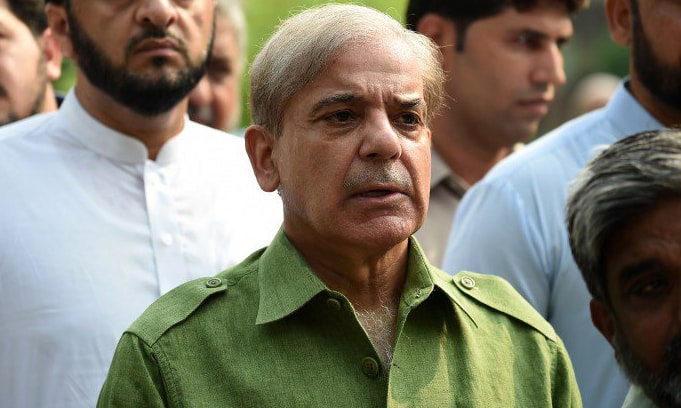LAHORE: Prime Minister Shehbaz Sharif directed to expedite work on renewable energy projects_ solar and wind_ for their speedy completion. He was chairing a meeting on renewable energy.
Ministers Ishaq Dar, Khurram Dastgir, Ahsan Iqbal, Special Assistant to PM Jehanzeb Khan and Adviser Ahad Cheema attended the meeting.
The PM underscored the completion as government’s main priority the production of electricity through renewable energy sources. He added that the renewable sources would produce low-cost and environment-friendly electricity.
The participants of the meeting discussed current wind and solar energy resources in the country, the pace of work on the ongoing projects, and the delayed projects.
Work on solar power projects of 10,000 megawatts was continuing at a fast pace, the meeting noted.
PM Sharif said the PTI government did not complete the solar and wind energy projects started by the PML-N government. The 220 million people of Pakistan suffered due to “criminal negligence” and “incompetency” of the last government
He asked relevant institutions to immediately prepare a strategy for benefiting from the available solar and wind resources.
Besides the current 10,000 megawatts renewal energy projects, the meeting was informed that solar and wind power projects of 6,000 megawatts were also considered to produce environment-friendly and low-cost energy.
The Energy Scarcity and Efforts
A few weeks ago Pakistan and Russia held meetings vis-a-vis investing in traditional energy projects. The ICCI and the Moscow Chamber of Commerce and Industry (MCCI) signed a Protocol of Intentions to advance cooperation in the energy sector. It followed a three-day Pakistan-Russian Intergovernmental Commission talks for enhancing energy cooperation.
Apart from acquiring energy, the government is also taking initiatives to conserve energy in the country. A parliamentary body had earlier in January recommended to the National Energy Efficiency and Conservation Authority to conduct energy efficiency audit of the parliament building. The audit was recommended to ascertain the building’s share in conserving energy since the installation of solar panels in 2015.
A separate report on the energy efficiency indicate that urban agglomeration consumed approximately 80 percent of global energy out of which 40pc accounted for buildings.


